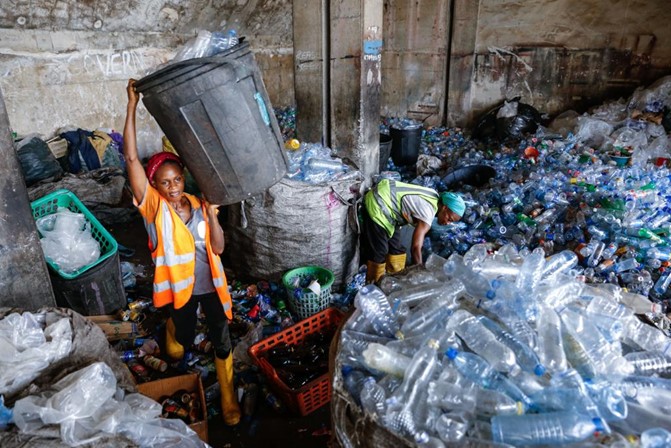- BII commits $10 million to innovative SDG Outcomes Fund.
- First fund dedicated to development impact bonds in low and middle-income countries globally.
- BII’s commitment will help demonstrate viability of development impact bonds as an effective funding tool to unlock maximum impact within underserved communities.
British International Investment (BII), the UK’s development finance institution (DFI) and impact investor, has announced a $10 million commitment to the SDG Outcomes Fund as an anchor investor alongside the US International Development Finance Corporation (DFC). Both DFIs will support the first fund dedicated to development impact bonds in lower and middle-income countries[1] globally including Africa and South Asia.
Set up as a partnership with UBS Optimus Foundation as lead investor and Bridges Outcomes Partnerships, a specialist not-for-profit entity, as fund manager, the Fund uses an innovative blended finance structure to invest in impact bonds and similar outcomes-based contracts that support the UN Sustainable Development Goals. It targets essential healthcare, education, employment, child protection and environmental outcomes aimed at improving the lives and livelihoods of some of the world’s most vulnerable populations.
As a leading impact investor, this marks BII’s first investment in development impact bonds. The fund will target some of the most challenging sectors and vulnerable communities as well as advance financing tools that help accelerate the progress of key development challenges facing the continent.
SDG Outcomes has made initial investments in West Africa, providing upfront capital to initiate and deliver education and environmental services. The fund aims to invest more widely across Africa and South Asia.
- Education in Sierra Leone – supporting the local government to improve numeracy and literacy outcomes for 195 primary schools in Port Loko, Western Urban, Kambia, Bombali, Koinadugu, Tonkolili and Kono. The programme is working with over 42,000 children, while also helping to develop the schools through teacher training and curriculum improvement.
- Education in Ghana – a similar-government-backed outcomes partnership, which aims to assist over 40,000 children already in education and increase access to schooling for a further 18,000 children outside the education system in the Northern region of Ghana (Tolon, Kumbungu, Savelugu Nanton) and Oti region (Nkwanta North, Nkwanta South, Krachi Nchumuru, Krachi West, Krachi East, Biakoye).
- Sustainability in Nigeria – supporting the growth of Wecyclers, a social enterprise that collects, re-sells and recycles plastic waste via a franchise model. Wecyclers is aiming to collect over 30,000 tonnes of plastic waste during the next five years, while creating over 700 jobs in franchises and improving the incomes of thousands of waste sorters across Nigeria.
Through the SDG Outcomes Fund, impact investors fund the up-front costs of delivering these services. The commissioners of the programmes, which can include a government or NGO, commit to repaying this capital only if certain social and/or environmental outcomes are achieved. This approach offers multiple benefits that result in better service delivery and greater impact. It helps to create innovation and greater collaboration between stakeholders as it keeps all parties accountable for and focused on delivering better outcomes and value. The delivery organisations are incentivised and allowed more flexibility to adjust their programmes to local circumstances and ensure that they are fit for purpose.
Mila Lukic, CEO of Bridges Outcomes Partnerships said: “We’re hugely excited by the potential of SDG Outcomes to improve lives at scale and, over time, to transform the way in which development projects are designed and delivered. Around 600 million young people globally lack numeracy and literacy skills; millions more are suffering from the effects of plastics pollution. We are pleased that SDG Outcomes’ first projects are helping to address these challenges through innovative, outcomes-based partnerships.”
Maya Ziswiler, CEO of the UBS Optimus Foundation, added: ”The SDG Outcomes initiative is one of the first of its kind to provide the scale so desperately needed to provide real impact. By creating an investible solution, we can help our clients and partners to mobilise all forms of capital – from philanthropic, through to public and private investors motivated by both financial and non-financial returns on their investments. We are excited to be bringing this landmark initiative to market.”
Andrew Mitchell, UK’s Minister for Development and Africa, commented: “This commitment will support sustainable development projects in developing countries, particularly in Africa and South Asia, giving some of the world’s most vulnerable communities the means to provide local solutions to local problems. Not only will Development Impact Bonds improve healthcare, education, and child protection, they will also support economic growth and climate action, giving a much-needed boost to the UN’s Sustainable Development Goals.”
Sara Taylor, Director and Head of PE Funds and Co-Investments at British International Investment said: “We are very excited to be working alongside high calibre partners and scaling an innovative and flexible financial mechanism that centres on delivering impact. The first projects in West Africa are well-aligned with our mission to provide patient capital to create productive, sustainable and inclusive economies and mobilise private investment capital to support communities in Africa and South Asia that are a priority for BII.”
The commitment from BII will contribute to the United Nations’ Sustainable Development Goals on Good health and well-being (SDG 3); Quality education (SDG 4); Decent Work and Economic Growth (SDG 8) and climate action (SDG 13).










